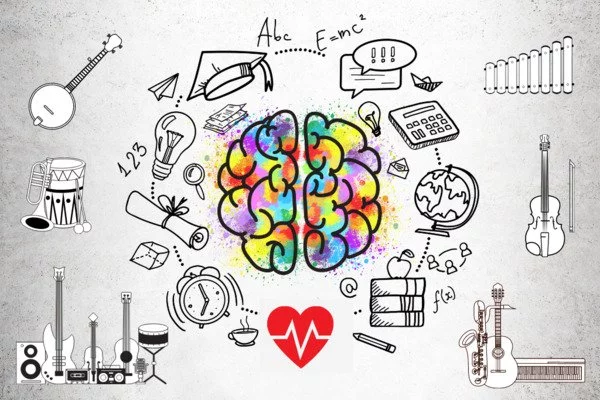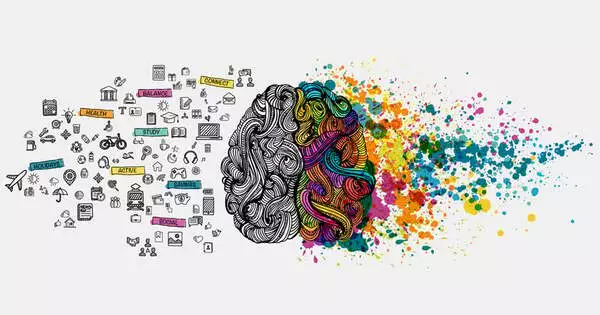Music education has been shown to have a positive impact on the well-being of youth in a variety of ways. Learning and practicing music requires the use of various cognitive skills, such as memory, attention, and spatial reasoning. As a result, children who participate in music education often show improvements in these areas. Music has been shown to have a calming effect on the mind and body and can help reduce feelings of stress and anxiety in children.
Learning and mastering a musical instrument can be a source of pride and accomplishment for children, which can boost their self-esteem and confidence. The latest USC research on the impact of music education shows that for adolescents, the benefits appear to extend beyond a surge in neural connections in their brains. It actually boosts their well-being.
The study, published in the journal Frontiers In Psychology.
“We know the pandemic has had an impact on student mental health. The numerous narratives of learning loss that have emerged since the outbreak paint a bleak picture of what some refer to as a “lost generation. Beatriz Ilari, an associate professor of music education at USC Thornton School of Music and the study’s corresponding author, agreed.
Given the high rates of depression and suicidal ideation among LGBTQ+ and non-gender conforming students, it is critical that research on adolescent well-being expands beyond the gender binary. Our findings can be used to inform the development of programs and policies for all young people, in addition to filling critical gaps in the existing literature.
Beatriz Ilari
“Music might be an activity to help students develop skills and competencies, work out their emotions, engage in identity work and strengthen connections to the school and community.” Grants were provided to support the work, including one from the Fender Play Foundation, a nonprofit organization that places instruments in the hands of young people who want to learn to play and reap the powerful benefits of music education.
Although many states and school districts have reduced the amount of class time, faculty, and curriculum dedicated to the arts due to budget cuts and changes in curriculum standards, evidence of those benefits continues to mount.
Prior research, including a long-term study conducted by the USC Brain and Creativity Institute, has shown that children who learn to play a musical instrument have improved cognitive function. According to a paper published last year in the International Journal of Environmental Research and Public Health, music education also contributes to improved creativity and confidence, better mental health and emotional stability, and student performance.

Greater hope for the future
Researchers examined the impact of music on “positive youth development,” a measure of adolescents’ strengths and potential to contribute to society developed by Tufts University scholars. Measures of school connectedness and optimistic future expectations were also included by the researchers.
The researchers distributed anonymous online surveys to 120 students from 52 middle schools in the Los Angeles Unified School District. The survey questions addressed key aspects of positive youth development, such as competence and confidence. Previous research indicates that adolescents who exhibit these characteristics are more likely to contribute positively to society and are less likely to engage in risky behaviors later in life.
Ilari and her colleagues, including USC Thornton alumna Eun Cho, discovered numerous positive effects. They discovered that students who began music lessons before the age of eight were more optimistic about the future and that younger students who received musical instruction performed better on key measures of positive youth development.
The researchers also discovered that younger students outperformed their older counterparts on key development measures. Sixth-grade students, for example, outperformed eighth-grade students in terms of overall positive youth development and outperformed both seventh and eighth-grade students in terms of confidence. Seventh-graders also outperformed eighth-graders in terms of overall positive youth development.
In completing the study’s survey questions, students were invited to choose from multiple gender categories beyond the usual binary gender options, including “non-binary” and “prefer not to answer,” to identify themselves. Non-binary students scored lower in overall positive youth development and connection than girls. They also scored lower in confidence and connection than boys.
“Given the high rates of depression and suicidal ideation among LGBTQ+ and non-gender conforming students, it is critical that research on adolescent well-being expands beyond the gender binary,” Ilari said. “Our findings can be used to inform the development of programs and policies for all young people, in addition to filling critical gaps in the existing literature.”
Students from various backgrounds participated in the study. Students participating in a virtual music education program, on the other hand, were primarily from low-income neighborhoods, indicating disparities in access to formal music education.
Furthermore, the study looked into students’ participation in various music programs, such as the Virtual Middle School Music Enrichment (VMSME), a tuition-free extracurricular program that focuses on popular music education and virtual learning. The program is made possible through a collaboration between the school district and the Fender Play Foundation. Researchers discovered that students who participated in multiple forms of music education over a longer period of time scored higher on measures of competence and future optimism. Some of the people in these groups were also taking private lessons or playing in small ensembles, which provide more individual attention than large group classes. Students in the extracurricular VMSME program, on the other hand, came from low-income neighborhoods and participated in fewer extracurricular activities.
“By increasing access to instruments and music classes for students from low socioeconomic areas – a population that is frequently left out of school music programs – VMSME helped to democratize music education,” Ilari said. “Throughout the pandemic, students in public schools, particularly those in urban areas, were disproportionately affected by lockdowns that cut them off from physical and social contact with their peers. VMSME brought students from various neighborhoods together at a time when forming peer groups is critical to social identity development.”
















